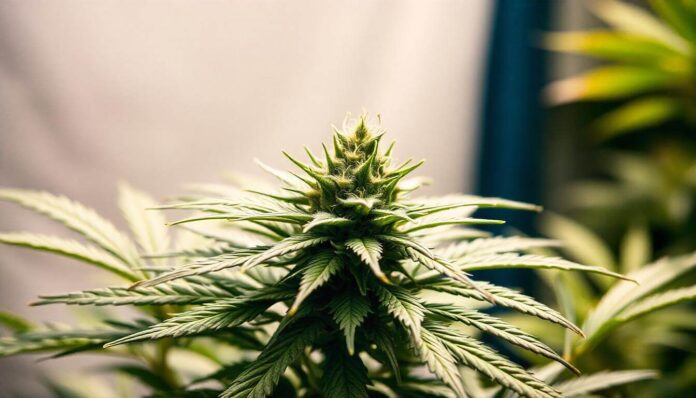The cannabis legalization issue has become a significant point of contention as political leaders shift their positions. This article delves into recent developments from key figures like Vice President Kamala Harris and former President Donald Trump to understand their changing stances on this hot-button topic.
Vice President Kamala Harris and cannabis reform
Although Vice President Kamala Harris has historically supported comprehensive marijuana legalization, her recent campaign efforts seem to neglect explicit mentions of cannabis policy reform. Her issues page highlights various critical subjects such as tax policies, health care, and education but omits any direct reference to marijuana.
During her time as a senator, Harris sponsored legislation aimed at ending federal prohibition. However, since achieving higher office alongside President Joe Biden, she has remained relatively silent on the matter. This shift opens an opportunity for other political figures to take a more vocal stance on the issue.
A focus on broader drug policies
Despite the lack of specific cannabis references, Harris’s platform does address broader issues related to drug policy. She emphasizes combating the opioid epidemic, tackling fentanyl abuse, and advocating for harm reduction practices such as making naloxone available without a prescription. This broad approach, however, leaves marijuana reform advocates wanting more direct action and clarity.
Her background as a prosecutor includes work against drug traffickers, which is now juxtaposed against her silence on cannabis—an absence noted by many in the advocacy community. Harris’s evolving stance reflects a delicate balance between addressing tough drug enforcement while considering modern attitudes towards cannabis use.
Donald Trump’s evolving position on cannabis
Former President Donald Trump has recently emerged with surprising endorsements for cannabis reform despite his past anti-drug rhetoric. This shift includes support for reclassifying marijuana and enabling banks to cooperate with state-legal cannabis businesses—a move welcomed by industry supporters.
Trump’s current actions contrast sharply with the tougher stand taken during his presidency, particularly under the guidance of his former attorney general, Jeff Sessions, who was notorious for stringent enforcement of federal marijuana laws.
Impact on the Florida ballot initiative
One of Trump’s notable actions includes publicly backing a Florida ballot initiative to legalize marijuana, a stark pivot from his previous positions. He suggested that such legalization would be beneficial for the state, garnering attention and possibly swaying public opinion.
This new endorsement comes after consultations with significant stakeholders, including Republicans like Rep. Nancy Mace, who has been vocal about ending federal prohibition through legislation like the States Reform Act. It’s a strategic move in line with polling data indicating strong voter support for marijuana legalization.
Campaign dynamics and accusations
The contrasting positions between Harris and Trump have fueled campaign strategies. The Harris camp criticizes Trump’s inconsistency, pointing out his historical crackdown on marijuana offenses compared to his current pro-reform stance. They argue that these shifts are merely opportunistic maneuvers rather than genuine ideological changes.
Moreover, Trump’s attacks on Harris’s prosecutorial record reflect a tactical attempt to undermine her credibility regarding racial justice and cannabis reform. These complex interactions highlight the multifaceted nature of political posturing in the ongoing debate over cannabis legalization.
Public perception and electoral implications
The varying approaches to cannabis reform among leading politicians impact public perception and could influence voter behavior. Given the increasing bipartisan support, candidates’ stances on marijuana policy might play a crucial role in upcoming elections, especially among younger and progressive voters seeking substantial change.
With states across the country moving towards legalization, the narrative around federal policy and individual candidate positions is poised to shape important electoral outcomes. The contrasting narratives of Harris and Trump underscore the evolving landscape of cannabis politics in America.


